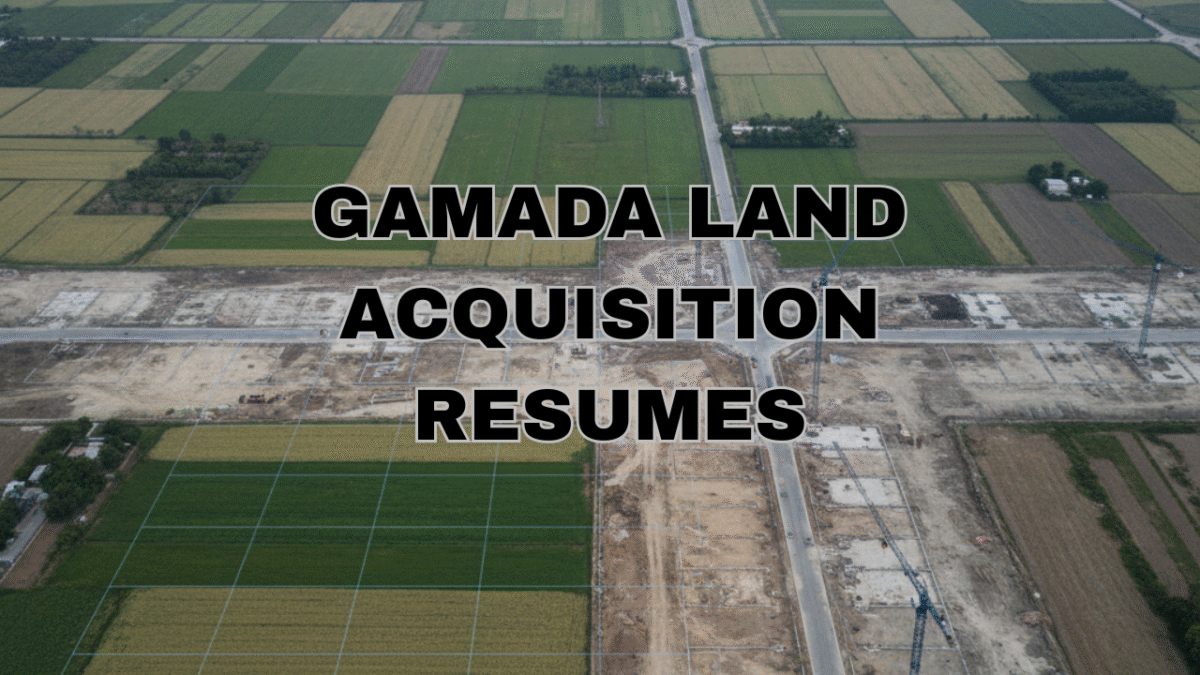Estimated reading time: 4 minutes
The Punjab government has directed the Greater Mohali Area Development Authority (GMADA) to resume land acquisition under the previous land pooling policy, following the rollback of a newer framework that had triggered widespread farmer protests. Officials said the move is intended to accelerate development of major projects and prevent the growth of unauthorised colonies in the region.
According to senior officials, nearly 2,600 acres will be acquired across Mohali sectors for a mix of residential, industrial, commercial, and institutional use. GMADA has begun preparing fresh notices to landowners while the final approval of the policy awaits cabinet clearance. “We will be acquiring land under the earlier policy in a way that satisfies landowners. The process has already begun,” a senior GMADA officer said.
The new land pooling policy, introduced last year, had faced strong resistance from farming communities, leading to its withdrawal earlier this year. Farmers argued that the revised terms were against their interests and launched statewide demonstrations. In response, the government chose to revert to the old policy framework to ensure smoother implementation.
Projects tied to the resumed acquisition include Aerotropolis, Eco City-3, Aerocity, and a cluster of new residential sectors along the PR-7 road. The breakdown of planned acquisition spans 236 acres in Sector 87 for commercial use, 313 acres in Sector 84 for institutional projects, and 321 acres in Sectors 101 to 103 for industrial development. The largest portion, about 1,800 acres, will be taken up for residential projects across Sectors 120 to 124.
Officials have expressed concern about the rapid rise of unauthorised colonies in villages such as Daun, Raipur, Behlolpur, Barmara, Tarauli, and Jhampur, where agricultural land has been carved into housing plots without clearances or Change of Land Use approvals. Nearly 50 acres have already been consumed by such colonies, which authorities say could create long-term planning and infrastructure challenges.
The Punjab governor had earlier notified amendments in March to streamline the auction of acquired land. The policy now classifies properties valued at ₹50 crore or more as “chunk sites,” while smaller plots fall into a separate category. In GMADA’s jurisdiction, all sales and leases of acquired land will now be conducted exclusively through e-auction, including those under the Optimum Utilisation of Vacant Government Lands scheme.
Urban planners say the renewed focus on land acquisition highlights the urgent demand for organised development in Mohali. With its proximity to Chandigarh and the international airport, Mohali has become one of Punjab’s most sought-after real estate markets. Large-scale projects like Aerotropolis and Eco City are central to the government’s vision of building integrated townships that balance residential, commercial, and industrial growth.
Analysts also note that while the return to the old policy may ease tensions with farmers, the process still faces challenges. Compensation, allotment ratios, and timely development remain contentious points that have historically delayed projects. Residents and investors are watching closely, as delays can inflate costs and fuel speculative activity in surrounding areas.
The state government’s intervention comes against the backdrop of rising demand for urban housing and commercial space in Mohali. Real estate data indicates steady growth in demand for residential plots, particularly in sectors close to the airport and along the PR-7 road. Developers say that clarity on acquisition policies is essential to sustain this momentum and to reassure both investors and homebuyers.
For GMADA, the immediate task lies in balancing landowner satisfaction with the government’s push for rapid infrastructure development. Officials maintain that the earlier land pooling policy, now reinstated, offers greater transparency and fairness in allotment ratios, reducing disputes and litigation. Still, farmer groups have signalled that they will monitor the process closely to ensure their concerns are addressed.
The final contours of the policy will depend on the cabinet’s decision in the coming weeks. Until then, the resumed process of GMADA land acquisition in Mohali has added urgency to debates over how Punjab should expand its urban hubs without alienating its farming communities. For Mohali’s residents, the outcome could shape the city’s growth trajectory for decades to come.
The Punjab government rolled back the new land pooling policy after farmer protests and directed GMADA to continue acquisitions under the older, more widely accepted framework.
GMADA is set to acquire nearly 2,600 acres of land across Mohali sectors for residential, commercial, industrial, and institutional projects.
The projects include Aerotropolis, Eco City-3, Aerocity, and residential development in Sectors 120 to 124, along with institutional and industrial projects in other sectors.
The acquisition aims to curb unauthorised colonies that have emerged on about 50 acres of agricultural land in villages like Daun, Raipur, and Behlolpur without proper approvals.
The Punjab cabinet must give final approval for the acquisition terms. Until then, GMADA is proceeding with notices under the old policy to prevent further delays.















